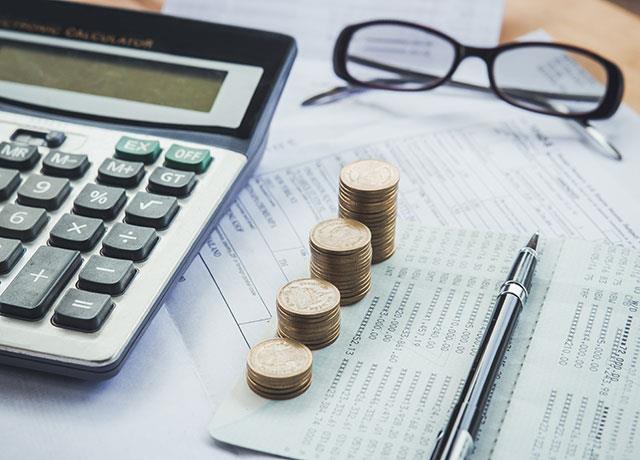*Article updated 23 March 2023
If you own one or more investment properties that you let out to tenants, it is important to note that any rent you receive forms part of your income and must be declared to the SA Revenue Service (SARS) on your annual tax return.

READ: Rental income and your tax return | Avoid penalties of up to 200%, warns SARS
Deliberately not declaring it is effectively tax evasion, which is a crime, and could lead to you having to pay a hefty fine - or even go to jail for up to five years.
What is more, says Berry Everitt, CEO of the Chas Everitt International property group, as SARS continues to improve the efficiency of tax collection, it is increasingly unlikely that any such non-declaration and or under-declaration will remain undetected.
"However, it is not all doom and tax gloom for landlords, because they are allowed to deduct all expenses that are related to the letting of the property from the gross rental received when calculating the taxable amount of income received from a rental property."
Everitt says, these expenses typically include any interest paid on a bond, homeowners’ insurance premiums, the municipal rates paid for the year, any amounts paid to repair and maintain the property and any levies paid.
READ: Tax guide and property transaction | Everything you need to know
"In addition, if you are retired and not earning any other income, it is just possible that your rental income will fall below the tax threshold for your age-group and that you will have no tax liability. But as a landlord, you will still need to submit a tax return, or risk having to pay an administrative penalty."
*According to SARS, the tax thresholds for the 2023/ 24 tax year are currently R95 750 for individuals under-65; R148 217 for people aged 65 to 75 and R165 689 a year for those over 75. (see https://www.sars.gov.za/tax-rates/income-tax/rates-of-tax-for-individuals/)
Everitt notes that South African tax law also empowers SARS to issue tax assessments based on estimates to people who regularly fail to submit returns – and to charge penalties and interest on unpaid taxes.
"So if you have not previously declared your rental income, you should seek the help of an accountant or tax consultant to approach SARS and voluntarily rectify the situation as soon as possible."
READ: Investment property and taxes: 5 questions answered
In addition Craig Hutchison, CEO of Engel & Völkers Southern Africa, previously explained that rent received from the letting of residential accommodation such as a holiday home, cottage on your property, sub-renting part of your house or a townhouse will all be subject to being taxed. The rental income is added to any other taxable income you receive, such as a monthly salary,” explained Hutchison.
Can the taxable income be reduced?
Yes, the taxable income accrued from renting out a property can be reduced as expenses are always incurred.
Expenses that may be deducted from rental income include:
- Bond interest
- Rates and taxes
- Property levies
- Estate agency fees
- Homeowners insurance (excluding household contents insurance)
- Garden services
- Repairs
- Security
Which expenses are not allowed?
It must be noted that only expenses related to the rental of the property may be deducted. Capital and private expenses won’t be considered as a deduction by SARS.
"While maintenance and repairs expenses can be passed, improvement costs are a capital expense and will be included in the base cost of the property. When the property is sold, the improvement costs will be an expense that will effectively reduce the capital gain, thus reducing the capital gains tax payable to SARS," explains Hutchison.
If expenses exceed rental income
There are times when, for one reason or another, the expenses accrued from leasing a property exceed the income. The loss should then be off-set against other income received by you the owner. When leasing out a property it is always best to consult with an accountant or tax specialist to fully understand what is deductible, how much tax will essentially be paid over the annual lease period, and the like. This will provide a realistic view of your net income.
"Income tax aside, the leasing of a residential property, if managed effectively, is a viable and financially sound way of adding to your monthly income stream. At the same time, you are the owner of an asset that will appreciate in value over time and will pay dividends as the years go by," says Hutchison.
Question:
A Property24 Reader wants to know, when buying an investment property with another person for the purpose of letting, how expenses related to the property are declared to Sars?
Ralph Schroder from Araujo Attorneys:
"They must keep an accurate record of the income and expenses that are earned on the property and then declare in their tax returns, there is then a section to note what % of that income/expenses is owned by them, ie. If its 2 shared owners they note 50% and their tax return will then provide for 50% of the profit or loss against their taxable income.
"This assumed the property is owned in their personal names. So yes, by default they declare their proportionate share of expenses," says Schroder.
It is declared under the Local Rental Income portion of their tax return
Want all the latest property news and curated hot property listings sent directly to your inbox? Register for Property24’s Hot Properties, Lifestyle and Weekly Property Trends newsletters or follow us on Twitter, Instagram or Facebook.








